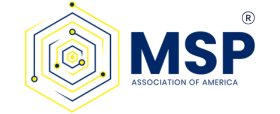Are AI Systems coming for our Jobs?
Content by: Carl de Prado from A2Z Business IT
I just asked Meta’s newest AI. Are they coming for our jobs?
It’s response was very diplomatic.
As per the AI’s response, here is the age-old question! AI GPTs (like me) are designed to assist and augment human capabilities, not replace them. While AI can automate certain tasks, it’s unlikely to take over most jobs completely. Instead, AI will likely change the nature of work, making certain tasks more efficient and liberating humans to concentrate on higher-level creative and problem-solving work.
GreenPepper developed the AI Efficiency & Innovation Catalyst Framework called the Six Bucket Model; AI is rapidly evolving I am sure there will be more buckets that will be developed.
These 6 areas are:
Quickly finishing tasks: Artificial intelligence (AI) tools can quickly finish tasks that normally take a long time. What if you could finish a day’s work in just one hour?
Solving for the Impossible: What We Think Is Impossible: Some things we think people can’t or shouldn’t do. This is something that AI can do and make possible.
Making routine tasks easier: AI can do boring tasks that need to be done repeatedly, like answering the same questions. People can then work on more interesting things.
Cutting down on mistakes: Everyone sometimes makes mistakes, especially when doing hard things. AI is better at these tasks and makes fewer mistakes, like finding mistakes in large amounts of data or numbers.
Making Hard Things Easy: Some things are really hard to do. AI can make these things easier to handle by quickly translating between languages or helping doctors understand medical information that is hard to understand.
Cost-Effective Expansion: Expanding a business or taking on big projects can be pricey. AI can help us do more work for less money. For example, it can determine when tools must be fixed so they don’t break down when we least expect them.
The main parts:
- Finding time-consuming tasks that AI can significantly speed up, reducing the time required to a tiny fraction of what it was, is known as time optimization.
- Identifying tasks that are currently impossible or require too many resources for humans but can be done well by AI is called unfeasibility solutions.
- Repeated Task Automation: Using machines to do boring and repeatable tasks so people can work on more creative and difficult projects.
- Using AI to do jobs that people often make mistakes on will improve accuracy and reliability, reducing mistakes to a minimum.
- Taking on jobs that are hard or complicated for people right now and making them easier to do with AI solutions makes them more accessible and manageable.
- Using AI to do jobs at a scale or cost that can’t be done with traditional software tools or by hand is called cost-effective scaling.
With all the innovation, AI is still going to need people. Workers need to develop skills that work with AI. So, I ask AI what skills I need to be successful. Excellent question!
To work effectively with AI, consider developing the following skills:
Data literacy: understand how to collect, analyze, and interpret data to inform AI-driven decisions.
Programming and coding: Learn languages like Python, R, or SQL to work with AI systems and develop custom solutions.
Data visualization: Develop skills to present complex data insights and AI outputs clearly and visually.
Machine learning and deep learning: Study the fundamentals of AI and machine learning to understand how models work and how to improve them.
Critical thinking and problem-solving: Develop your ability to analyze complex problems, identify biases, and optimize AI-driven solutions.
Communication and collaboration: Learn to effectively explain AI-driven insights and work with technical and non-technical stakeholders.
Creativity and adaptability: Develop a mindset that embraces change and leverages AI for innovation and growth.
Ethical awareness: Consider the ethical implications of AI and develop strategies to address potential biases and challenges.
Domain expertise: Develop deep knowledge in a specific area (e.g., healthcare, finance) to effectively apply AI solutions.
Continuous learning: Stay up-to-date with the latest AI advancements and best practices to remain relevant in an evolving landscape.
By developing these skills, you’ll be well-equipped to collaborate with AI and unlock its full potential! I thought that was too vague, so I asked a follow-up question. What is the most important skill I need? While all the skills I mentioned are valuable, if I had to choose one essential skill to work effectively with AI, it would be critical thinking and problem-solving.
Critical thinking allows you to:
- Evaluate AI-driven insights and decisions
- Identify biases and errors
- Understand the limitations of AI
- Develop creative solutions to complex problems
- Make informed decisions that balance human judgment with AI recommendations
- In a world where AI is increasingly prevalent, critical thinking and problem-solving skills will help you navigate,
- Optimize and innovate in partnership with AI systems.
By developing these skills, you’ll be able to effectively harness the power of AI and make informed decisions that drive success!
The reason this is so important to us is that it enables us to empower businesses like yours to thrive in a rapidly evolving landscape. By harnessing the power of AI, we can help you stay ahead of the curve, drive innovation, and protect your organization from potential threats. Our goal is to support your success and help you achieve your goals.


